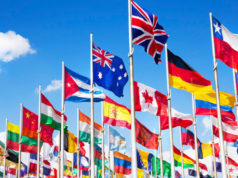The provincial government in Balochistan led by Chief Minister Jam Kamal ended the year 2020 with a series of questionable decisions. The year-end decisions of fencing Gwadar, cracking down on informal oil trade, and handing over the operational command of the Levies force to police have raised many eyebrows, with many people pointing out these decisions have further exposed the inability of the Balochistan Awami Party (BAP) led government to deliver effectively.
In the second week of December, the Balochistan government suddenly began fencing Gwadar city. The plan, as told by government officials, was to fence 24 square kilometer area of Gwadar city and only allow two to three entry points. People with special permits can enter through these points, as per government plans. It was also claimed that the idea of fencing was part of the Gwadar smart city masterplan. A government official even revealed to the media that fencing was being done so that Chinese personnel could go for an outing and cherish a marvelous walk along the beaches of Gwadar.
This decision by the government triggered strong opposition from people across the province. A jirga held in Gwadar rejected the government’s plan to fence off the port city and termed it an attempt to restrict the entry of local people in the area. Political parties, media, and civil society also questioned the rationale behind this decision. Balochistan Bar Council challenged this decision in the high court. However, some businessmen and politicians associated with the ruling party expressed support for this decision.
In the face of mounting opposition, a delegation of provincial government ministers visited Gwadar on December 29. After hearing the opposition of locals, the government announced to stop the fencing till the complaints of residents are addressed. Although the opposition of locals prevented the government from moving ahead with the fencing, the government is still adamant about carrying on with it. A fenced city will never be able to get the confidence of foreign investors and this decision, if implemented, will effectively kill all chances of any foreign direct investment in Gwadar.
The second questionable decision of the government was taken on December 28, when the Home Department issued orders to security agencies to crack down on informal trade of Iranian oil in Balochistan. It is an open secret that Iranian oil is smuggled from the border to Balochistan, from where it is transported to the entire province and bordering areas of Sindh, Punjab and Khyber Pakhtunkhwa. This informal oil trade was taking place with the tacit approval of both Pakistan and Iranian governments. This trade helps provide cheap fuel in bordering districts of Balochistan and a source of livelihood to tens of thousands of people who take risks to transport the oil from the Iranian border to its destination.
The reason such decisions are made and implemented is that this government does not have a proper debate and discussion mechanism to take input and perspectives from all stakeholders. The government also does not listen to the advice of the opposition
This oil trade is not strictly legal but successive governments have ignored it because it is the only source of livelihood for people in many districts of Balochistan. Upon the insistence of the PTI government in the center, the BAP government in Balochistan has ordered an ill-thought-out crackdown on this oil trade while completely ignoring the negative repercussions of this decision on the people. The provincial government is in no position to provide an alternative source of livelihood to these people and has embarked on a journey that will snatch their existing sources of livelihood. This insensitive behavior by the Balochistan government is attracting negative attention in the province, but still, the government is going ahead with its decision for now.
The third questionable decision of the government is handing over the command of the Levies force to the police in Quetta, Gwadar, and Lasbela. This is part of the wider plan of the government to eventually merge Levies into the police force. Levies is a more than a century-old local policing force, which is unique to Balochistan. Unlike police, all personnel and officers of Levies are local residents of Balochistan. The police force, on the other hand, is infested with the problems of corruption and favoritism, which enables crime in the cities.
On the other hand, the performance of Levies is far better than the police and it manages a far greater geographical area with relatively limited resources. In fact, according to the United Nations Office on Drugs and Crimes (UNODC) study on Citizen Perception in Balochistan Rule of Law Road Map Project, the average citizen in Balochistan is more satisfied with the performance of the Levies than other law enforcement agency. This is a testament to the public trust in the Levies but still, the government wants to get rid of this force.
In reaction to this decision, Balochistan’s law secretary has written a letter to the Home Department explaining that government cannot hand over the operational command of Levies to the police. This is a violation of the law, which the Balochistan government is committing to implement its flawed governance agenda. This will also result in bad press and negative backlash for the already unpopular government.
The three aforementioned examples of flawed decisions provide a glimpse into the overall governance of the provincial government. The reason such decisions are made and implemented is that this government does not have a proper debate and discussion mechanism to take input and perspectives from all stakeholders. Likewise, the government also does not listen to the advice of the opposition and dismisses all their statements as political rhetoric. If the government does not change its decision-making mechanism then the people of Balochistan will witness more flawed decisions in 2021.
Editor
Balochistan Voices
Share your comments!








